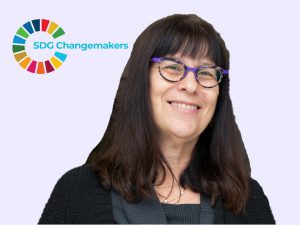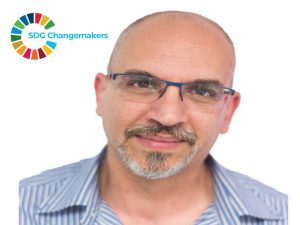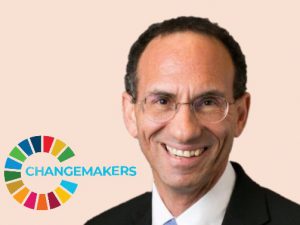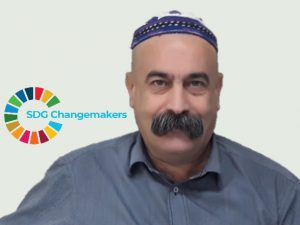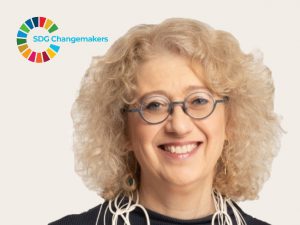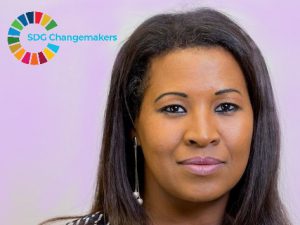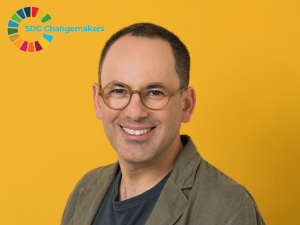Deputy Director General & Social and Personal Services Administration Director – Ministry of Labor, Social Affairs and Social Services
SII: How has your work been affected by the COVID-19 crisis?
IF: My first task following the outbreak of the pandemic was to make sure that the essential services under my responsibility would remain open. Services such as those for domestic violence and sexual assault, youth dormitories and frameworks that existed for children at risk were already defined in the first emergency regulations as ones that need to remain functioning.
Another immediate endeavor was to reach out to the populations under my Administration’s care, because we knew that, given the situation, there would be an increase in domestic violence and more children in risk situations. I instructed my Administration’s teams to proactively reach out to populations at risk before the situation got worse, and to provide immediate solutions to populations displaying signs of distress. In light of the situation and reports from the field, it is evident to us that there are additional populations in need of social services whom we are not familiar with. In recent weeks, new households have been approaching us for the first time because of financial hardship or violence that erupted during the lengthy lockdown. This is a group with characteristics similar to those of the population that the social welfare services were previously acquainted with, but who have not needed us until now.
Following the onset of the coronavirus crisis, I was also assigned a further, additional responsibility: overseeing the social work administered at quarantine hotels run for COVID-19 patients by the Home Front Command of the Israel Defense Forces. This has been a complex task, working with people in quarantine experiencing severe anxiety while possibly developing additional difficulties.
SII: Please briefly describe your work
IF: I am the Deputy Director General in the Ministry of Labor, Social Affairs and Social Services and Director of the Administration of Social and Personal Services. In this capacity, I am responsible for developing a comprehensive set of social policies, initiating and establishing social services, their budgeting, and supervising their delivery across the State of Israel.
The social services under my responsibility serve at-risk families and children, as well as communities and individuals experiencing an ongoing or one-time crisis.
The services are delivered by the local authorities and by NGOs and are provided in close proximity to the client’s home. Some of the services are administered under the authority of legal requirements and some in the form of out-of-home solutions, alongside steady development and innovation to constantly upgrade services. I manage a budget of NIS 3 billion.
SII: Name three principle values that you associate with your work?
IF: The primary principle that guides me when I instruct my employees is to look at service recipients as equals and to treat them and their needs with respect. Examining the needs of the recipient, having the recipient participate in decision-making processes, and frequently checking-in with the recipient’s feelings are all essential parents of good social work.
Another guiding principle is to operate in partnerships. Good and efficient work is achieved when the authorities, civil society, other Ministries and a variety of other entities are brought in to participate. In the COVID-19 era, I have held many roundtable discussions to find solutions to citizens’ needs which are often only arrived at through information and resource sharing among our partners.
A third guiding value is the need to make information available to the public in an accessible and timely fashion. Responding to COVID-19 necessitated swift action on our part so that all the guidelines we issued during the pandemic could be adapted and uploaded to an online platform and viewed by the public immediately.
SII: What particularly motivates you to make a difference?
IF: I chose to work in government because I wanted to be part of meeting and resolving the needs of others. I am in a place where I can see peoples’ hardships, think creatively on how to solve those hardships while also guiding staff in how to provide a solution, and see to it that they do so. Social workers, generally speaking, have their thinking directed towards providing people with solutions, seeing others’ strengths and enabling them to recover and reintegrate within society once again. I believe in providing assistance that enables people to ultimately stand on their own two feet, because that is often what is best for the person – as well as for society as a whole. I grew up believing that there is always light at the end of the tunnel, and that you do not stop until you reach it, until a solution has been found. This is what my father, a Holocaust survivor, taught me. I therefore set long-term goals for solutions to social distress, and I press ahead to achieve them, even when the going is tough.
SII: What positive impact do you see emerging through your activity?
IF: I see growing resilience of communities, of society, and of individuals. Once the individual is strengthened and a layer of social resilience is established, people are steady and support one another.
SII: What is your favorite project?
IF: The Government Decision adopted two and half years ago regarding domestic violence and violence towards children – a decision that I was behind. I see domestic violence and violence towards children as IF: an area in which major change is required in Israel at the inter‑Ministerial level. That Government Decision is something I put a lot of effort into, something which I am proud of.
SII: Where are you headed in the future?
IF: I would like to engage in government-wide processes involving collaboration among Ministries in order to have broad social impact.
More about Iris Florentin:
Iris is a graduate of the Wexner Foundation program for senior leaders in the public sector, as well as the Digital Leaders program.
She has a Bachelor’s Degree in Social Work and a Master’s Degree in Social Work specializing in moderating groups and training employees, as well as a Master’s Degree in Public Policy in the Civil Service Commission’s program for senior leaders.
Iris began her professional career in the Mental Health Services in open and closed frameworks, followed by several managerial roles in a local authority. She subsequently managed the Service for Addictions Therapies in the Ministry of Labor, Social Affairs and Social Services before being promoted to her current position.


